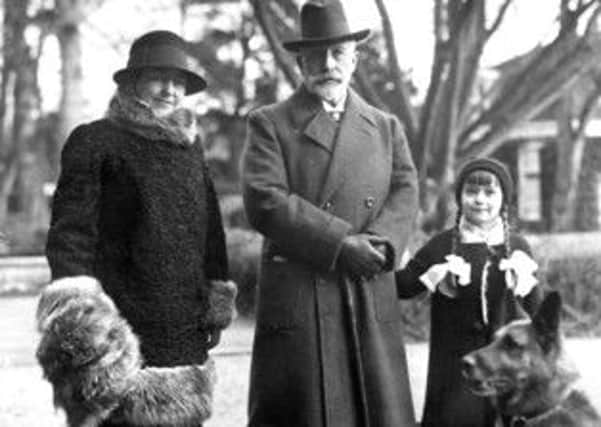Destruction of the monarchies


It’s as well to remember that among the complicated diplomatic and political triggers which started the war, the first was the decline of the Ottoman Empire leaving the Balkans in ferment, the Emperor Charles of Austro-Hungary moving to address this, the effect this had on the Russians who had interests in the Balkans and the entry of the German Kaiser who saw a chance to attack Russia before her industrial capacity was large enough to be a problem.
Advertisement
Hide AdAdvertisement
Hide AdRussia was allied to Britain and France and this was what drew us into the war.
The first monarch to topple was Tsar Nicholas in 1917, due to a combination of long-standing problems and sealed by his inept handling of the war with Germany as supreme military leader.
A provisional government was set up but by 1919 had fallen under the onslaught of a Bolshevik revolution which by 1922 had complete control of Russia.
As it became obvious the war could not be won, Kaiser Wilhelm II of Germany and the Emperor Charles in Austro-Hungary both lost control and, in effect, abdicated. In Turkey the Caliphate was abolished in 1920 and in 1922 the Ottoman Sultan was ejected from his palaces. Only the King Emperor in Britain remained. What is often forgotten about this destruction of monarchy is that it had consequences for the major religions.
Advertisement
Hide AdAdvertisement
Hide AdThe Orthodox Church in Russia was seen as directly connected to the monarchy and both its churches and clergy were attacked. The Grand Patriarch Tikhon was placed under house arrest where he mysteriously died in 1925. It is suspected he was murdered by a Bolshevik thug from Georgia, the bastard son of a priest who had failed in training for Holy Orders. His name was Josef Stalin.
The same fate befell Orthodoxy in what had been the Ottoman Empire. It shrank under a campaign for a modern secular society.
Between 1915 and 1916 more than a million Armenian Christians were massacred in what most historians outside Turkey agree was genocide, the first European Holocaust of the modern era.
Even in England there were consequences because many could not forget the way the established church had encouraged the war frenzy. The Bishop of London, Arthur Winnington-Ingram, preached a sermon at Advent in 1915 advocating the slaughter of the good as well as the bad and the young as well as the old. Herbert Asquith, the Prime Minister described him publicly as “an intensely silly bishop”.
Advertisement
Hide AdAdvertisement
Hide AdThese were all major factors in Europe after the war but don’t usually figure much in current discussions. We would do well to remember them and how influential they eventually became. It was believed at the time this was “the war to end all wars”. Unfortunately it was not and unfinished business would be resumed in 1939.